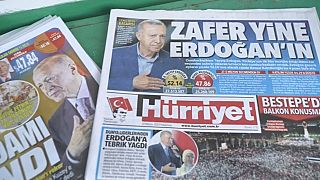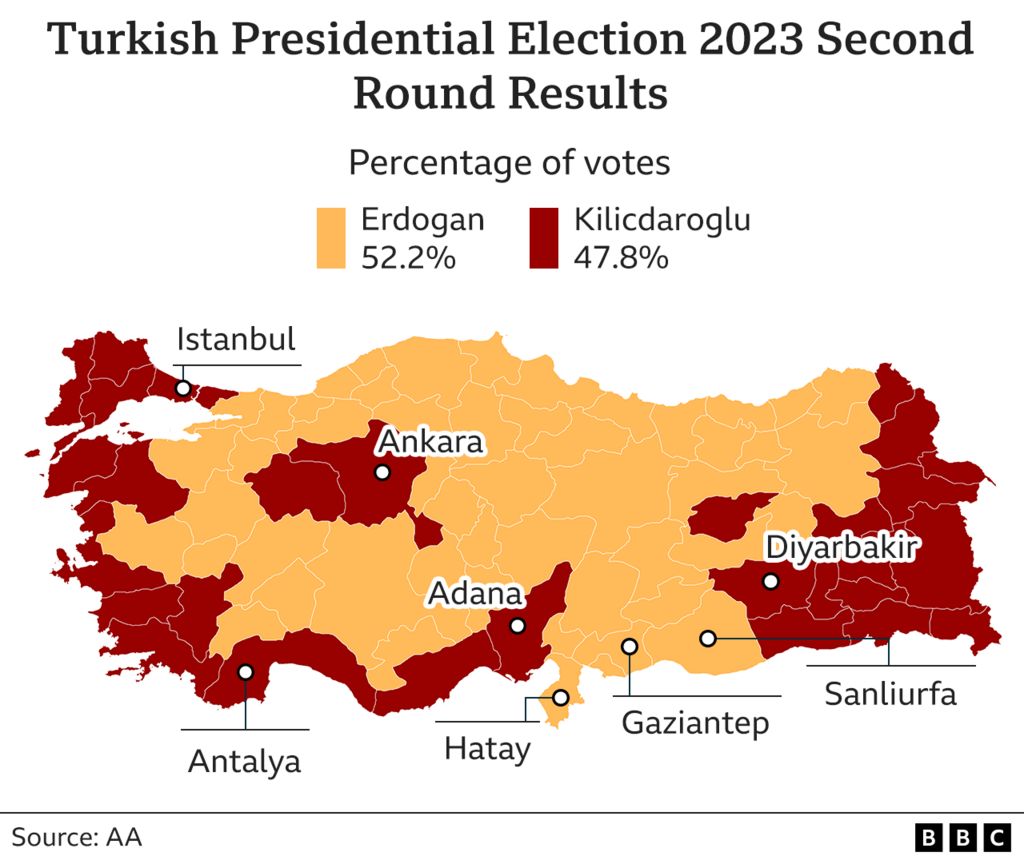Islamist Member of NATO : A Non-Alliance
"The alliance that brought him to power this time was underwritten by a nationalist voter base, but also designed to create a sense of urgency among his supporters that whether it was Kurdish militants, western-oriented liberals or foreign powers, they all wanted to topple Erdoğan with this election.""What he’s doing is what we’ve seen cultural conservatives do across eastern Europe and even in Russia, claiming that our way of life is under attack and ‘I’m standing up for traditional values’.""After winning on a ticket like this one, a complete 180-degree turn into inclusive and conciliatory language would be surprising."Ziya Meral of the Royal United Services Institute"The opposition tried to make this election about the economy, about the aftermath of the earthquakes and corruption.""Instead, Erdoğan made it about how he was able to defend Turkey against terrorists, identity politics and polarization."Soner Cagaptay, analyst, Washington Institute for Near East Policy

Recep Tayyip Erdogan changed the Republic of Turkey from the Kemalist secular democracy it had been for close to a hundred years with its emphasis on and identification with Western values, through his deliberate reintroduction of Islamist values and principles, emphasizing and stressing Islam's importance to the nation as he moved it steadily away from the identity values established by Mustafa Kemal Atatürk. Erdogan's investiture met with resistance from the military which traditionally upheld the Turkey that Ataturk envisaged.
His ruthless extirpation of senior military figures from command, in their resistance against his Islamization of Turkey was but a rehearsal in comparison to his reaction to the 2016 attempted coup that failed. Erdogan set about arresting and imprisoning anyone he suspected might have been involved in the coup, from police, to lawyers, military personnel, to journalists, sweeping through the country to identify, charge and imprison any who might have lent themselves to opposing Erdogan's government.
The Turkey that became a member of NATO is no longer the same country whose Western orientation gave it entree to the European/North American military alliance. Its Western allegiance and identification diminished in favour of honouring its Muslim heritage of the Ottoman Empire, Turkey has been a poor fit for NATO since Erdogan won power. He transited from an autocrat to a dictator, a strongman with much in common with Vladimir Putin, and even emulated Mr. Putin's gradual assumption of supreme power in Russia.
Erdogan's fixation on Turkey's Kurdish population as 'terrorists' eager to splinter Turkey's geography refuses to recognize Kurdistan's ancestral right to geographical territory in Turkey, Syria, Iraq and Iran, none of which would dream of surrendering land to its ancestral inheritors. The Kurdish homeland was betrayed though promised by France and England, the occupying powers who preferred in the end to gift Turkey and the other three with national borders encompassing Kurdistan.
Prior to Recep Tayyip Erdogan's Islamist government relations with its neighbours, both East and West bore witness to the aspirations of Mustafa Kemal Ataturk's forward-looking plan to modernize and Westernize Turkey. Re-election was won by Erdogan and his Justice and Development Party in an unusual run-off when the original general election failed to produce a majority winner. Two weeks later, Erdogan won the 52 percent he needed for re-election and Turkey remains in a state of polarization.
The Turkish lira is almost worthless against the U.S. dollar, people are suffering economic hardships in the lack of affordability of all measures of a reasonable standard of living. Skyrocketing inflation must be effectively confronted at a time when Erdogan refuses to adopt recognized methods of dealing with economic failure. The devastating earthquake that hit Turkey and Syria killing over 50,000 people levelled entire cities at a time when government emergency response was inadequate and the building code problems that have long haunted Turkey were laid at Erdogan's feet.
Where Erdogan's presidential challenger Kemal Kilicdaroglu addressed the real problems that Turkey was facing, vowing to lead the country back to prosperity and secularism, Erdogan's campaign leaned heavily on national paranoia, emphasizing terrorism afflicting the nation, code for Kurds demanding equal treatment and the autonomy they demand justice for. Mr. Kilicdaroglu pointed to the need to amend relations with the West and with Turkey's Kurdish demographic, but the fear factor worked in Erdogan's favour.
"Turkey will likely signal it is open to some form of rapprochement, such as by encouraging parliament's ratification of Sweden's accession to NATO.""Erdogan has successfully maintained a multi-vector foreign policy which has enabled him to have constructive relations with Russia, China and countries throughout the Middle East, even if this has been to the detriment of Turkey's alliances with the West."Jay Truesdale, head, geopolitical risk consultancy, Veracity Worldwide
"Another five years of Erdogan means more of the geopolitical balancing act between Russia and the West.""Turkey and the West will engage in transactional co-operation wherever [Turkey's] interests dictate it -- and it will compartmentalize its relationship."Galip Dalay, associate fellow, Chatham House, London

Labels: General Election, NATO Member Islamist Turkey Recep Tayyip Erdogan, Republic of Turkey

<< Home